The majority of those trying to lose weight often assume that snacking will hinder their efforts because of the excess calories consumed. Although most people associate snack foods with something processed or high calories, such as chips or cookies, a snack simply refers to a food or beverage that is eaten between the main meals.
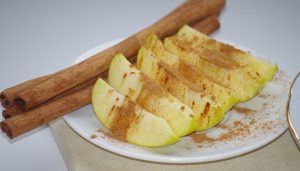 Snacks can either be a healthy part of someone’s diet or they can be the reason for unwanted weight gain and health problems. The outcome of having an afternoon tea or snack depends on an individual’s snacking behaviour. This includes what the person is snacking on, how often the person snacks, and how these snacks fit into an individual’s eating plan.
Snacks can either be a healthy part of someone’s diet or they can be the reason for unwanted weight gain and health problems. The outcome of having an afternoon tea or snack depends on an individual’s snacking behaviour. This includes what the person is snacking on, how often the person snacks, and how these snacks fit into an individual’s eating plan.
Indulging in afternoon tea or an afternoon snack has been shown to affect both appetite and weight. When it comes to how snacking affects appetite, the existing studies have demonstrated a variety of results. Some studies have shown that snacking to curb hunger for only a short amount of time means that the person will still consume the same amount of food throughout the day. This results in an increased caloric intake and, therefore, most likely weight gain.
However, other studies have found that snacking helps reduce hunger and that the calories from the snacks are most likely compensated for during the subsequent meal. Since the studies have different results, it seems as though the effect that an afternoon snack can have on appetite depends on the individual and the type of snack being eaten.
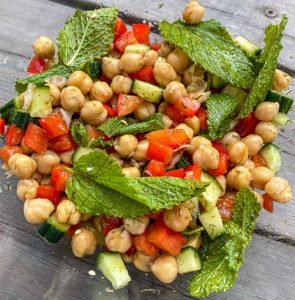
The research undertaken on the effect of having an afternoon snack on weight has also shown mixed results. This once again implies that the type of snack consumed is an important determinant that should be considered when considering an individual’s response to snacking. The consumption of high protein and high fibre snack foods as opposed to high fat and high sugar snack foods can help with weight loss because it improves appetite, satiety and reduces food intake during the subsequent meal. This leads to an overall lower caloric intake for the day and hence promotes weight loss. Examples of these snacks could include cottage cheese, chickpeas, low-fat yoghurt, low-fat puddings, as well as fruits and vegetables.
Many studies explain that frequently eating during the day can actually help with weight loss because it increases metabolism and improves the control of insulin and glucose, which can help reduce body weight. In the case of a large gap between lunch and dinner, having an afternoon snack can help an individual eat more frequently and curb their hunger. Having an afternoon snack also helps keep blood sugar levels stable, preventing light-headedness and fatigue while also reducing the urge to eat high caloric meals later. It’s essential to try and choose a snack with a low glycaemic index to keep blood sugar levels stable throughout the day and prevent them from spiking.
Apart from helping with weight loss, having a healthy afternoon snack can boost energy if the time between lunch and dinner is too far apart and blood glucose levels drop. This can help an individual stay productive, active and maintains concentration during the day. An afternoon snack can also complement other foods eaten during the day by providing extra nutrients, minerals, fibre, and even protein or fat. For example, if an individual isn’t getting their five portions of fruit and vegetables a day, having a piece of fruit can help the person meet that recommendation.
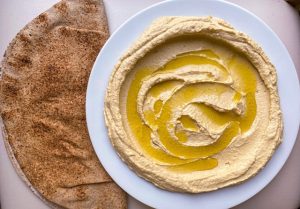 Nutrient-dense foods such as nuts can also help people meet the recommended daily nutrient intake levels and ultimately improve the quality of their diet. Snacking can also help people who struggle to meet their caloric needs, such as older adults or young children, as it helps sustain proper nutrition.
Nutrient-dense foods such as nuts can also help people meet the recommended daily nutrient intake levels and ultimately improve the quality of their diet. Snacking can also help people who struggle to meet their caloric needs, such as older adults or young children, as it helps sustain proper nutrition.
Although different studies have shown different results, it can be concluded that having a healthy afternoon snack high in protein, healthy fats, and fibre can definitely help someone trying to lose weight while eating nutritious food. If nutritious, low-calorie snacks that come from more than one food group are planned and prepared, an individual can enjoy other health benefits that go beyond aiding their weight loss journey.
This article was written by Tamara Rammal
References
Alencar, Michelle K et al. “Increased meal frequency attenuates fat-free mass losses and some markers of health status with a portion-controlled weight loss diet.”Nutrition research (New York, N.Y.) vol. 35,5 (2015): 375-83. doi:10.1016/j.nutres.2015.03.003
Chapelot, Didier. “The role of snacking in energy balance: a biobehavioral approach.”The Journal of nutrition vol. 141,1 (2011): 158-62. doi:10.3945/jn.109.114330
Navas-Carretero, Santiago et al. “Chronologically scheduled snacking with high-protein products within the habitual diet in type-2 diabetes patients leads to a fat mass loss: a longitudinal study.” Nutrition journal vol. 10 74. 14 Jul. 2011, doi:10.1186/1475-2891-10-74
Webb, Densie. “Snacking Benefits.” Todays Dietitian, (2013): pp. 44–44.
© 2021 The Caroline Walker Trust
Links:
https://pubmed.ncbi.nlm.nih.gov/25862614/
https://academic.oup.com/jn/article/141/1/158/4630611


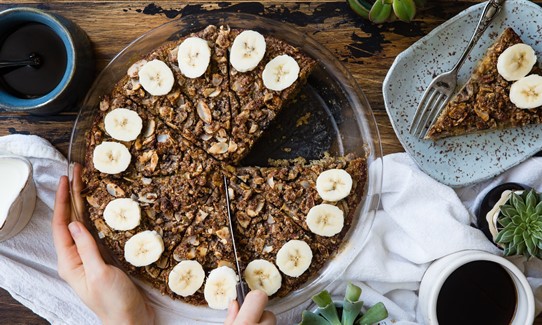
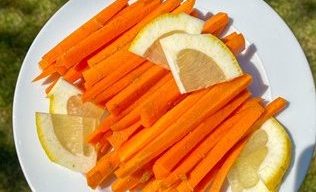
 Snacks can either be a healthy part of someone’s diet or they can be the reason for unwanted weight gain and health problems. The outcome of having an afternoon tea or snack depends on an individual’s snacking behaviour. This includes what the person is snacking on, how often the person snacks, and how these snacks fit into an individual’s eating plan.
Snacks can either be a healthy part of someone’s diet or they can be the reason for unwanted weight gain and health problems. The outcome of having an afternoon tea or snack depends on an individual’s snacking behaviour. This includes what the person is snacking on, how often the person snacks, and how these snacks fit into an individual’s eating plan.
 Nutrient-dense foods such as nuts can also help people meet the recommended daily nutrient intake levels and ultimately improve the quality of their diet. Snacking can also help people who struggle to meet their caloric needs, such as older adults or young children, as it helps sustain proper nutrition.
Nutrient-dense foods such as nuts can also help people meet the recommended daily nutrient intake levels and ultimately improve the quality of their diet. Snacking can also help people who struggle to meet their caloric needs, such as older adults or young children, as it helps sustain proper nutrition.